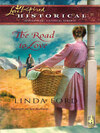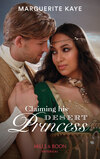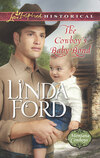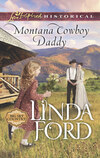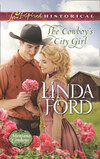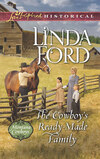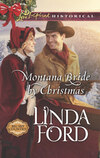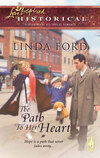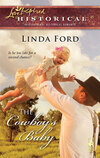Kitabı oku: «The Road to Love», sayfa 2
Chapter Two
Hatcher watched the blades on the Bradshaw’s windmill turn smoothly as he headed down the road toward a nearby farm where he heard a man could get a bit job. All he needed was enough work to fill his stomach and a chance to bathe and wash his clothes before he moved on. He prided himself on a fair amount of work in exchange for a handout. Seems the meal Mrs. Bradshaw provided was more generous than the work he’d done. He’d have to fix that somehow.
As he shoveled manure out of the barn for a Mr. Briggs, he tied a red neckerchief over his nose and kept his mind occupied with other things than the pungent, eye-watering smell of a long-neglected job. Most men would be ashamed to let even a hobo bear witness to such slovenliness. Not that it was the worst job he’d ever done. Good honest work never hurt anyone. Long ago, he’d learned he could enjoy his thoughts as he worked at even the most unappealing job; his favorite way was to see how many Bible verses he could recall without stumbling. In the ten years he’d been wandering the back roads of this huge country, he’d committed hundreds to memory. From the first day the words from Genesis chapter four, verse seven haunted his thoughts. If thou does well, shalt thou not be accepted? And if thou doest not well, sin lieth at the door.
He’d sought comfort and absolution in the scriptures. He’d memorized the first nine chapters of Genesis, saw over and over the failure of man to live as God intended. A fact that surprised him not at all.
Today, as he worked, he interspersed his recitation with plans on how to rectify his debt to Mrs. Bradshaw. It would require he return to the slough where he’d spent the previous night. Not often did he retrace his steps but he couldn’t move on until he adequately repaid her.
He finished working for Mr. Briggs, received a meager meal of one shriveled unpeeled potato and a slab of side bacon that was mostly fat. It measured poorly in comparison with the meal of the previous evening. Mr. Briggs granted him permission to use the water trough to wash his clothes and himself, which he did. In his clean set of clothes, his wet ones rolled and tied in a bundle, he returned to the slough where he hung the garments to dry.
And then he tackled his project.
Next morning Hatcher headed up the driveway to the Bradshaw home with the shelf he’d created from willow branches. Nothing special. Hobos all over the country made them. In fact, she probably had several already. A woman who cooked a fine generous meal like the one she’d provided him was bound to have received gifts before.
The big black-and-white furry dog raced out to bark at his heels.
“Quiet, Shep,” he ordered.
The animal stopped barking but growled deep in his throat as he followed so hard on Hatcher’s heels it made the back of his neck tingle.
Not a dog to let anyone do something stupid. Good dog for a woman who appeared to be alone with two kids.
The place seemed quiet at first but as he drew closer, he heard mumbled warnings. Seemed to be Mrs. Bradshaw speaking. Threatening someone.
He felt a familiar pinching in his stomach warning him to walk away from a potentially explosive situation but he thought of some of the homeless, desperate, unscrupulous men he’d encountered in his travels. If one of them had cornered Mrs. Bradshaw…
He edged forward, following the sound around the old Ford truck and drew to a halt at the sight of Mrs. Bradshaw standing on a box, her head buried under the hood of the vehicle, her voice no longer muffled by the bulk of metal and bolts.
“You good for nothing piece of scrap metal. Why do you do this to me? Just when I need you to cooperate, you get all persnickety.” She shifted, banged her head and grunted.
“If I had a stick of dynamite, I’d fix you permanently.”
Hatcher leaned back on his heels, grinning as the woman continued to scold the inanimate object. After a moment, he decided to make a suggestion that might save both the truck and the woman from disaster.
“’Scuse me for interrupting, but maybe you should bribe it instead of threatening it.”
She jerked up, crashed her head into the gaping hood and stumbled backward off the box, her palms pressed to the top of her head as she faced him, her eyes narrowed with her pain. “Oh, it’s you. You startled me.”
He regretted she had every right to be frightened of him. Fact of the matter, she should be far more wary than she was. He tipped his head slightly. “My apologies.” He slid his gaze to the dirt-encased engine behind her. “It’s being uncooperative?”
She turned to frown fiercely at the bowels of the truck. “I’ve done everything. Even prayed over it.”
He blinked in surprise and amusement at the way she glanced upward as if imploring God to do something.
“I might be able to help,” he said.
She stepped aside, made a sweeping swing of her arm toward the truck. “It’s all yours, mister.”
He hitched up his pants, pretended to spit into his palms, rubbed his hand together, and imitating her gesture, glanced imploringly skyward.
She laughed, a snorting sound she tried to hide behind her fist.
He darted her a quick glance, not wanting to stare at the way her warm brown eyes flashed amusement yet his gaze lingered a second as a strand of her shoulder-length cinnamon-colored hair blew across her cheek and she flicked it aside. Nice to see a woman who still knew how to laugh. He’d seen far too many all shriveled up inside and out, worn down from fighting the elements, trying to cope with disappointment after disappointment and a mountain of work that never went away. Well, maybe he could do something to ease this woman’s work and repay her for her kindness of two days ago. He bent over the hood of the truck and studied the motor. Sure could use a good cleaning. He checked the carburetor. The choke was closed. No wonder it wouldn’t run. “You got a piece of hay wire?”
“Hay wire? You’re going to fix my truck with hay wire?”
“Ma’am, ain’t nothing you can’t fix with hay wire and bubble gum.”
She made that snorting sound of laughter again. “Sorry, I have no bubble gum but I’ll get you some wire.”
She sauntered away to the barn, chuckling and murmuring about the miracle of wire and gum.
He was glad to brighten someone’s day. As he waited, he scraped dirt and bug guts off the radiator and tightened the spark plugs.
Her quiet chuckle heralded her return, the sound like the first rays of a summer day—warm, promising good things to fill the ensuing hours.
He quieted his soul with the words of scripture: He that is slow to anger is better than the mighty; and he that ruleth his spirit than he that taketh a city. He sought for the reference. Knew it was Proverbs but the sound of the woman at his elbow made him momentarily forget the exact location. He kept his attention on the motor until he brought his thoughts under submission. Proverbs sixteen, verse thirty-two. Only when he had it correct did he straighten.
“This do?” Her voice bubbled with amusement as she handed him a coil of wire.
“Just the thing.” He bent off a piece and wired the choke open. “That should do the trick.”
He cranked the motor over several times and it kicked to life.
Remembering her skyward pleas, grateful for divine assistance, he stood back, glanced up to heaven and nodded to thank God for His help.
Mrs. Bradshaw clapped. “Guess I just needed a prayer partner. And someone who understands motors. Can you show me what you did?”
“It’s nothing. Just the miracle of hay wire.” Side by side, they bent over the motor and he explained the workings of the carburetor and the function of the choke.
“Got it.” She straightened and turned to lean on the fender that hinted at once being gray. Now it was mostly patchy black and rusty. “Trouble is, now I know that, it will be something else that goes wrong.”
“Someone once told me, if you’re not learning and growing, you’re withering.”
She chortled. “No doubt about it then. I’m growing.” She grew quiet as she looked across the fields. “Though it seems my farm is withering.”
“Your husband off working somewhere?”
She didn’t answer.
Caution. That was good. Didn’t pay to trust too quickly. He dusted his hands. “Brought you a gift.” He retrieved it from beside the truck.
“A gift? Why?”
“To say thanks.”
She took the shelf and examined it, ran her fingers over the words he’d cut into the front of the shelf. The Lord is my helper. “It’s beautiful.”
He heard the shimmer in her voice and lowered his gaze, tried not to let the tightness in his throat make itself known.
She cleared her throat and continued. “I’ll hang it next to the door. But it’s me who owes you thanks for getting the truck running. I have to get to town today and didn’t know how I was going to make it there and do my errands before the children are out of school.”
He’d made shelves such as that on two previous occasions. Once when a kind family had provided shelter from a raging snowstorm.
Another time after he’d helped an elderly woman bury her husband. He’d carved a verse in the top branch. Hebrews thirteen, verse five, I will never leave thee, nor forsake thee, hoping the object and verse would remind her she wasn’t alone.
But Mrs. Bradshaw’s gratitude for his poor offering gave him a queer mingling of regret and hope. He couldn’t afford to luxury in either emotion. Backing away, he touched the brim of his hat. “Ma’am.” He headed down the road. He got as far as the end of the truck when she called out.
“Wait. Mr….” She paused as if searching for his name,
“Jones. I was planning to go to town and post a little advertisement for someone to help me. I can’t run this farm by myself.”
“Lots of men looking for work.” He continued walking away.
She fell in step beside him. “I need someone who can fix my tractor and put the crop in. You seem like a handy kind of man.”
“I’m moving on.” Her steps slowed but his did not.
“Right away?”
“The road is long.”
“And it calls? My father was like that.”
He didn’t argue but for him the open road didn’t call. The back road pushed.
She stopped altogether. “I’m sure I’ll find someone.” Her voice rippled with determination. She turned and headed home. “Or I’ll do it myself.”
Hatcher faltered on his next step then marched onward. Before he reached the end of the lane, he heard her singing and chuckled at her choice of song.
“‘Bringing in the sheaves, bringing in the sheaves. We shall come rejoicing, bringing in the sheaves.’”
The woman needed a whole lot of things to happen before she could rejoice about the sheaves. Not the least of which was someone to help her put the seed in the ground, but no need for him to worry about her. Within an hour of posting her little ad, she’d have half a dozen or more men to choose from.
Back at the slough where the flattened straw-like grass showed evidence of how long he’d camped there, he bundled up his now-dry clothes and packed his kettle away. He cocked his head when he heard Mrs. Bradshaw drive down the road.
He hesitated, thinking of her words I’ll do it myself, and hearing her cheery voice in joyful song. She was the kind of woman who deserved a break. He would pray she got it and find a hired man who would be what she needed.
She’d never said if her husband was dead or gone looking for work elsewhere. Though it seemed the farm provided plenty of work. Maybe not enough income to survive on. Must be hard raising those two young ones alone and running the farm, as well. Hard for her and the kids. If only he could do something to ease their burden. Besides pray.
He thought of something he could do that might add a little pleasure to their lives. Another couple of hours before he got on his way wouldn’t hurt. Regretfully resigned to obeying his conscience he dropped his knapsack and pulled out his knife, chose a nice branch and started to whittle. He stopped later to boil water and toss in a few tea leaves. When the tea was ready, he poured it into a battered tin cup, picked up his Bible, leaned against a tree trunk and settled back to read as he waited for the Bradshaws to come home. He calmed his thoughts, pulling them into a tight circle and stroked the cover of the Bible, worn now to a soft doe color, its pages as fragile as old onionskin. He’d carried it with him since he left home, knowing, hoping to find within its pages what he needed. He’d found strength for each day, a tenuous peace, and a certainty of what he must do, what his life consisted of now. Like Cain, he was a vagabond.
He opened the Bible, smoothed the tattered edges of the page with his fingertip and began to read.
Sometime later, he heard the truck groan up the lane, waited, giving the family a chance to sort themselves out then he headed up the dusty tracks.
The dog saw him first and barked. The little boy yelled. “Mom, it’s Hatcher. He’s come back.”
“Dougie,” a voice called from inside the house. “Stay here.”
The eager child skidded to a halt and shuffled backward to the truck where he stopped and waited, bouncing from foot to foot as if still running down the road in his mind. The dog hovered protectively at his side.
Mrs. Bradshaw hurried out, saw her son was safe and shielded her eyes with her hand as she watched Hatcher approach. Her lips curved into a smile of recognition.
Something in his heart bounced as restless and eager as Dougie at the truck then he smoothed away the response with the knowledge of who he was and what his future held. He thought to warn the woman to spare her smiles for someone who’d be staying around to enjoy them. Pushed away that thought, as well. Settled back into his hard-won peace.
“Ma’am.” He nodded and touched the brim of his hat, painfully aware how dirty it was. “I made something for the little ones, if you don’t mind.”
She studied him a moment. He could feel her measuring him before she nodded as if he had somehow passed an inspection.
A flash of regret crossed Hatcher’s mind. For the first time his solitude seemed poverty-stricken. He needed to cling to the blessings of his life. One God had provided. One that suited his purpose.
He pulled a willow whistle from his pocket and held it out to Dougie. The child bounced forward and took it with loud thanks. He blew a thin sound.
Shep backed away, whining. The child looked at him and blew again. The dog settled on his haunches and howled.
Dougie blew. The dog howled in unison.
The boy stopped. The dog stopped. The boy blew his whistle. The dog howled. Both child and animal tipped their heads as if not quite sure what was going on.
Mrs. Bradshaw laughed. “Shep wants to sing with you.”
Dougie giggled and blew several sharp notes. The dog lifted his nose and howled.
Hatcher’s wide smile had an unfamiliar feel. As if he hadn’t used it in a long time.
The little girl slipped out the door and pressed to her mother’s side.
Hatcher pulled another whistle from his pocket. “One for you, too, missy.”
The child hesitated. He understood her guarded fearfulness, respected it and waited for her to feel he meant her no harm.
“Go ahead, Mary,” her mother said.
The child snatched the whistle from Hatcher’s hand. He caught a glimpse of blue eyes as she whispered her thanks. The dog’s plaintive howls drew the child away. She blew her whistle. The dog turned toward the added sound and wailed. The girl laughed.
Hatcher nodded, satisfied he’d given both children a bit of pleasure. “Ma’am.” He touched his hat again and retraced his steps toward the slough.
“Wait,” she called.
He stopped, hesitated, turned slowly.
“Thank you.”
He touched the brim of his hat. He’d done what he aimed to do—give a bit a pleasure he hoped would make the children forget for a few short hours the meanness of their lives.
“I’ll make you supper.”
He’d already been here longer than usual, longer than he should. “I have to be moving on.”
“It’s too late today to go anywhere.”
She had a point. But he didn’t want to hang around and…
Well, he just didn’t care to hang around.
“Or did you find some game?”
He shook his head. He’d planned to snare a rabbit but he’d whiled away his hours whittling and reading. “I’m not the world’s greatest hobo.”
“Need more practice?”
“Don’t think so.” Some things just never got easier.
“Then please, allow me to share what we have. As thanks for the children’s toys.”
The youngsters had moved off, marching to their tunes, the dog on their heels, still adding his voice. Every so often the children stopped, looked at Shep and laughed.
“See how much fun you’ve provided them.”
Hatcher’s smile started in the corners of his mouth, tugged his lips to the centers of his cheeks and didn’t stop until it nested in his heart. “That’s all I wanted, ma’am. No thanks needed.”
“Nevertheless, I insist.” She spun around and headed for the door, paused and turned back. “Please.”
The invitation, heartfelt and sincere, begged at his heart. He knew to accept it was to break his code of conduct. He didn’t stay. He didn’t go beyond kind and courteous. He couldn’t. But her pleasant smile caused him to waver. One more meal and then he was on his way. “Very well.”
She indicated he should wait. He leaned against the truck and looked around. A big unpainted barn, one door sagging. Breaks in the fences where tumbleweeds driven by the wind had piled up and then caught the drifting soil until the fence disappeared. A solid chicken house, the chickens clucking at the barren ground behind their fence.
A farm like many others. Once prosperous; now struggling to make it through each season.
He watched the children play. So happy and innocent. Maybe such happiness was reserved for the very young.
Chapter Three
Kate stood in the middle of her kitchen, a palm pressed to her throat, and tried to explain to herself why she’d insisted the man stay for supper.
Not that she regretted the invitation. She owed him for the gifts he’d given the children. It was pure joy to see them both laughing and playing so carefree. But more than that, he’d admitted he’d failed to catch a rabbit and she couldn’t push aside the knowledge he’d go hungry if she didn’t feed him. She’d learned at a young age how to snare the shy animal, had grown quite good at it for all it was a tricky business. But she recalled too well that rabbits were sometimes as scarce as hen’s teeth. Hunger was not a pleasant companion. True, most times they were able to rustle up something—edible roots to be boiled, lamb’s quarters—a welcome bit of greens in the spring but grainy and unpleasant as the season progressed. More times, her father got eggs or potatoes or even a generous hunk of meat in exchange for some work he’d done.
But although thankfully few and far between, Kate could not forget the days her stomach ached with hunger, when she’d gone to bed with nothing but weak tea to fill the emptiness.
No, she could not in good conscience turn a man back to an empty stew pot even if she had to scrape the bottom of the barrel to feed him. And although she’d used the last of her meat two days ago for the meal she prepared for Hatcher Jones she wasn’t at the bottom of the barrel yet, for which she thanked God. And her farm.
Mr. Zimmerman at the store said he’d heard talk of setting up a butcher ring. She hoped her neighbors would do so. Mr. Zimmerman said the Baileys had something ready. Perhaps they’d take the initiative and start the ring. In a few weeks the yearling steer could be her contribution. But in the meantime, all she had to offer Hatcher was fried eggs and potatoes and something from the few items left from last year’s preserving. As the eggs and potatoes fried, she raced down to the cellar for a jar of beet pickles to add to the meal for color. Everything ready, she went to the door and whistled for the children to come.
Mr. Jones jerked around and stared at her. No doubt he’d heard the same dire warnings as she about women who whistled. She smirked derisively. “I know, ‘a whistling woman and a crowing hen are neither fit for God nor man.’”
He touched the brim of his hat. “Seems a crowing hen would taste just fine.”
Her surprise at his answer gave her the sensation of missing a step, her foot dropping into nothingness, her stomach lurching in reaction. It took her a second to steady her breathing.
He touched the brim of his hat. “Ma’am,” he added.
She was about to be ma’amed to death. “Name’s Kate Bradshaw, if you don’t mind.”
“Good enough name far as I’m concerned.”
At his laconic humor, she felt a snort start in the back of her mouth and pressed her fist to her mouth hoping to quell it, knowing she couldn’t. She’d tried before. Tried hard. But she’d never learned to laugh like a lady. And with a willful mind of its own, her very unladylike snort burst around her fist. She expected to see embarrassment or surprise in Mr. Jones’s face. Instead little lines fanned from the outside corners of his eyes easing the resigned disinterest dominating his expression so far.
Her laugh deepened as it always did after the initial snort. Her gaze stayed with him, fastened on his dark eyes as they shared amusement and, it seemed to her, a whole lot more, things too deep inside each of them for words or even acknowledgement.
The children marched toward her, Shep at their heels singing his soulful song and Kate escaped her sudden flight into foolishness and gratefully returned to her normal, secure world.
Dougie stopped at the steps. “Did you know dogs could sing, Momma?”
Kate shook her head. “I didn’t know Shep could sing, though I’ve heard him howling at the coyotes.”
Dougie turned to the man. “Hatcher, you ever hear a dog sing before?”
Mr. Jones nodded. “A time or two.”
Dougie looked shattered, as if knowing another dog had the same talent made Shep less special.
Hatcher gave the dog serious consideration. “I never heard a dog sing as well as this one, though.”
Dougie’s chest expanded considerably. He looked at Mary, who retreated to the doorway. “See. I told you.”
At that moment, Kate knew an inexplicable fondness and admiration for the man who’d returned her son’s dignity through a few kindly, well-chosen words. She smiled at the children, including Hatcher in her silent benediction. “Get washed up for supper.”
“Hatcher staying?” Dougie demanded.
“Yes, he is.”
“Good.” He faced the man. “Thank you for the whistle.”
Kate turned Dougie toward the door. “Wash.” As the children cleaned up, she dished a plateful for Mr. Jones and carried it out to him along with a handful of molasses cookies. They were dark and chewy. Not at all fancy but she had nothing else for dessert. “Would you care for tea?”
He hesitated before he answered. “Much appreciated.” He waited until she headed indoors before he sat down and turned his attention to the food. At the door she paused. He seemed the sort of man who should share their table as well as their food. Yet, he was a stranger and a hobo at that.
She hurried inside, ate with the children then carried a cup of tea out to the man. He wrapped his hands around the white china cup, rubbing his thumbs slowly along the surface as if taking pleasure in its smoothness, causing her to wonder how long it’d been since he’d been offered a simple cup of tea.
He sipped the contents and sighed. “Good.”
“It’s just tea.” She remained on the step, knowing she should return to the kitchen and get at her evening chores, yet feeling comfort in adult company. Not that she suffered for want of such. She’d stopped at Doyle’s office while in town this afternoon and as always he seemed pleased to see her.
He’d smiled as she entered the office. “What a pleasant surprise.” He closed a folder and shoved it aside. “I could use some fresh tea as could you, I’m certain, before you head back to the farm. If you truly must return.” His pale blue eyes brimmed with adoration. “Have you considered how convenient it would be for both of us if you lived in town. In the best house, need I remind you?”
She nodded, a teasing smile lifting the corners of her mouth. “I’ve seen the house. I know how lovely it is.”
“I decorated it and bought every piece of furniture for you, my dear. All for you.”
“So you’ve told me many times.” His generosity filled her with guilt. “Need I remind you that I didn’t ask for it?”
He rose and came around the desk to stand close to her, lifted her chin so he could see her face as he smiled down at her. “I know you didn’t but everything is evidence of my devotion to you.”
Again the uncomfortable twinges of guilt. She openly admitted her fondness for Doyle. But one thing stood irresolutely in the way of her agreeing to marry him—the farm. But he must have seen her argument building and tucked her arm through his.
“Some day I’ll convince you but enough for now. Let’s have tea.” He covered her hand with his protective palm as he led her past his secretary, Gertie, a woman with blue-gray hair and steely eyes that always made Kate wonder what she’d done wrong. He left instructions as to where he could be found. They went to the Regal Hotel, the best in town. Only and always the best for Doyle.
Of course, it wasn’t hard to be the best when, one by one, the other establishments had hung Closed signs on their doors.
Kate wondered again why he’d chosen her and why he continued to wait for her when other women would have been happy to be cared for by him.
He led her into the stately dining room, glistening with pure white linen and light-arresting crystal. As he ordered, Kate tried not to compare her simple farm life with the way Doyle lived—luxury, plenty of everything—a stark contrast to her current struggles. Even his clothes spoke of his tastes, a starched white shirt that the housekeeper must have labored over for hours, a perfectly centered tie, an immaculate black suit. She knew without looking that his fine leather shoes shone with a mirrorlike gleam.
He waited until the waitress in her black dress and crisp white apron had served them tea and scones with strawberry jam at the side then leaned forward. “I can offer you so much, Kate—you and the children. My holdings are growing daily. You would never want for anything.”
She sipped her tea and watched him, fascinated with the way his eyes sparkled like the diamonds in the rings in Adam’s Jewelers down the street where Doyle had taken her a few months ago, practically insisting she allow him to purchase a ring for her. She’d had a difficult time convincing him she wasn’t ready to make such a decision.
She brought her attention back to what he was saying.
“This is a perfect time to invest in real estate. Land prices are sure to go up once this depression ends. Just this morning I bought up another mortgage which will soon make me the owner of the feed store.” He pointed across the street. “Give me a year and I’ll own the mercantile, the hotel—” He indicated the other businesses.
Kate was no financial genius but she understood what his good fortune meant. “Doyle,” she said softly. “Doesn’t it bother you that it means tremendous loss to the current owners? They’ll walk away broke and defeated.”
He shrugged. “I’m sorry for them, certainly. But I’m able to take advantage of the situation and if I don’t, someone else will.” His gaze grew intense. “It’s all for you and the children.” He leaned forward. She almost gave in when he stroked the back of her hand. “Doesn’t it seem a waste for me to be alone in my house? You should be living there rather than me paying a housekeeper.”
Kate studied their joined hands. She missed Jeremiah. Missed being a wife. Missed sharing all the challenges and rewards of her life with someone equally invested in the farm and the children.
He pressed his point and told her again of the lovely things in his house. “It’s all ready and waiting for you to move in. Surely you can see how your children would benefit from the move.”
That argument always made her wonder if she was doing the right thing. In town, Dougie and Mary would be close to school. They’d be able to play with their friends. They could enjoy a few conveniences. Even luxuries.
“What would I do with the farm?” she asked. They’d discussed this before and he always had the same answer.
“Sell it, of course. Maybe not right away. Not unless we can get a decent price for it.”
“Doyle, if only you could understand what the farm means to me.” She’d tried so often to explain it.
“You won’t need the farm to have a home. You’ll have my home. A far better home. You won’t have to struggle and work so hard anymore. I will take care of you. You can enjoy life.”
“I need more than a fine home.”
“You’ll have much more. You’ll have the best of everything.”
She put on a gentle expression as she hid her disappointment. She’d have to accept her loneliness a bit longer because she couldn’t let the farm go. Not yet. Maybe never. If he’d ever suggested she keep it…
But he was unwavering in his opinion of what should happen. He folded his napkin and placed it neatly beside his cup. “Besides, you can’t manage on your own.”
It was the final clincher. Little did he know this insistence convinced her to dig in her heels and hang on. She’d find a way to survive, manage on her own.
It was too bad because she liked Doyle. He was attentive and kind, accompanied her to church, and indeed, offered her a fine life. She was genuinely fond of him. Did she love him? She wasn’t sure. She wasn’t even sure she wanted that.
What did she want? Consider the lilies how they grow: they toil not, they spin not; yet I say unto you that Solomon in all his glory was not arrayed like one of these. If then God so clothe the grass, which is to day in the field, and to morrow is cast into the oven; how much more will he clothe you, O ye of little faith?
